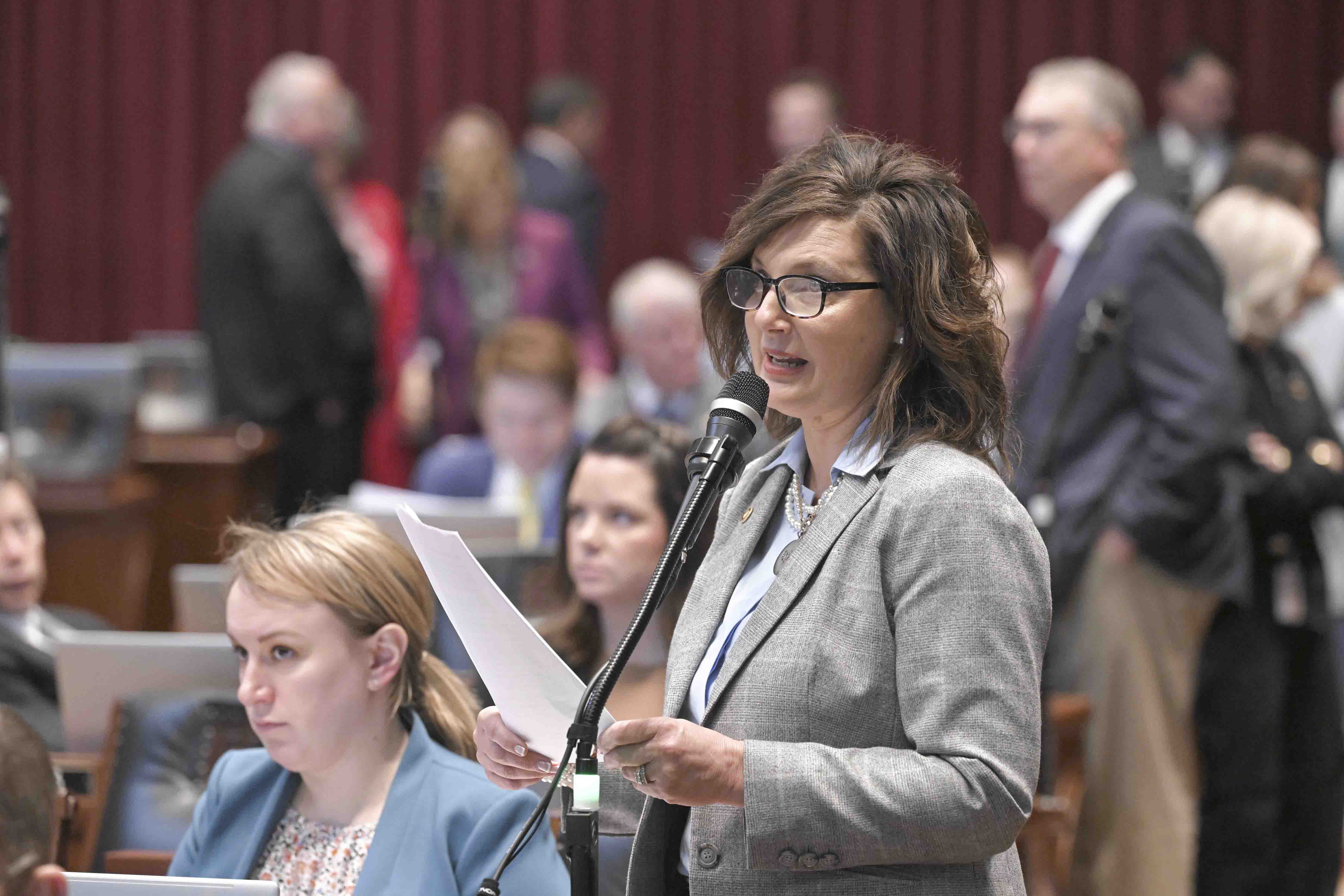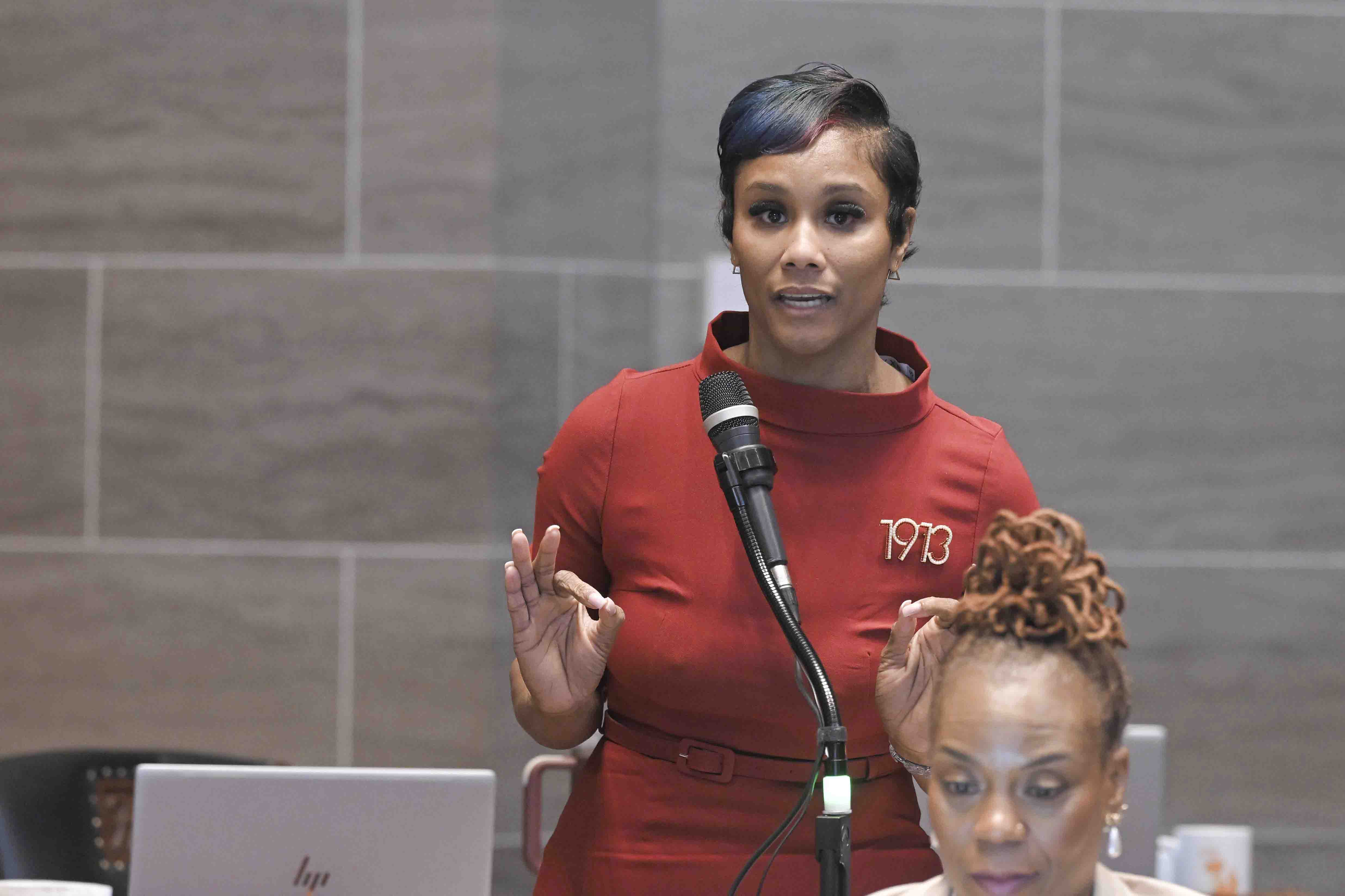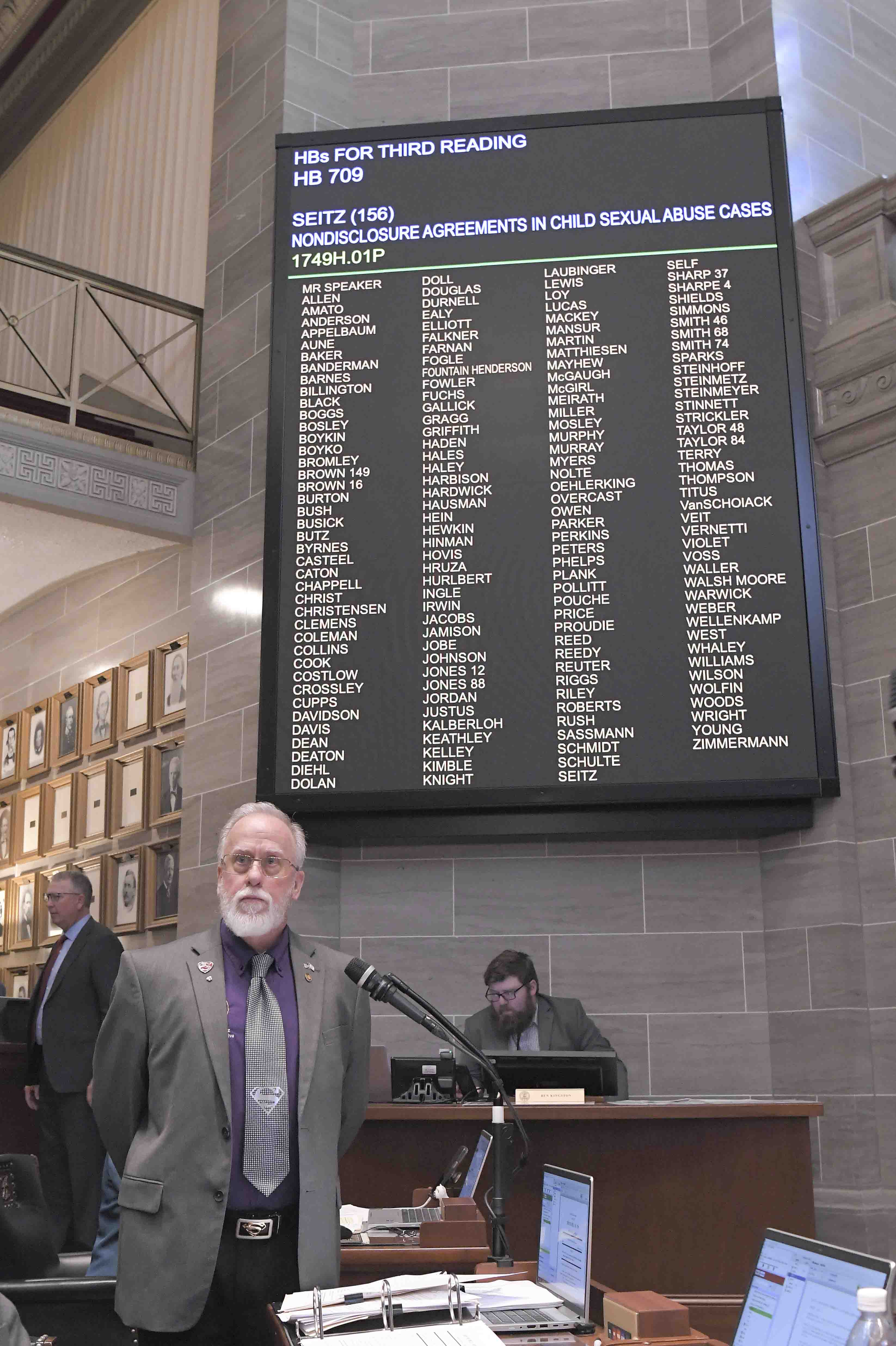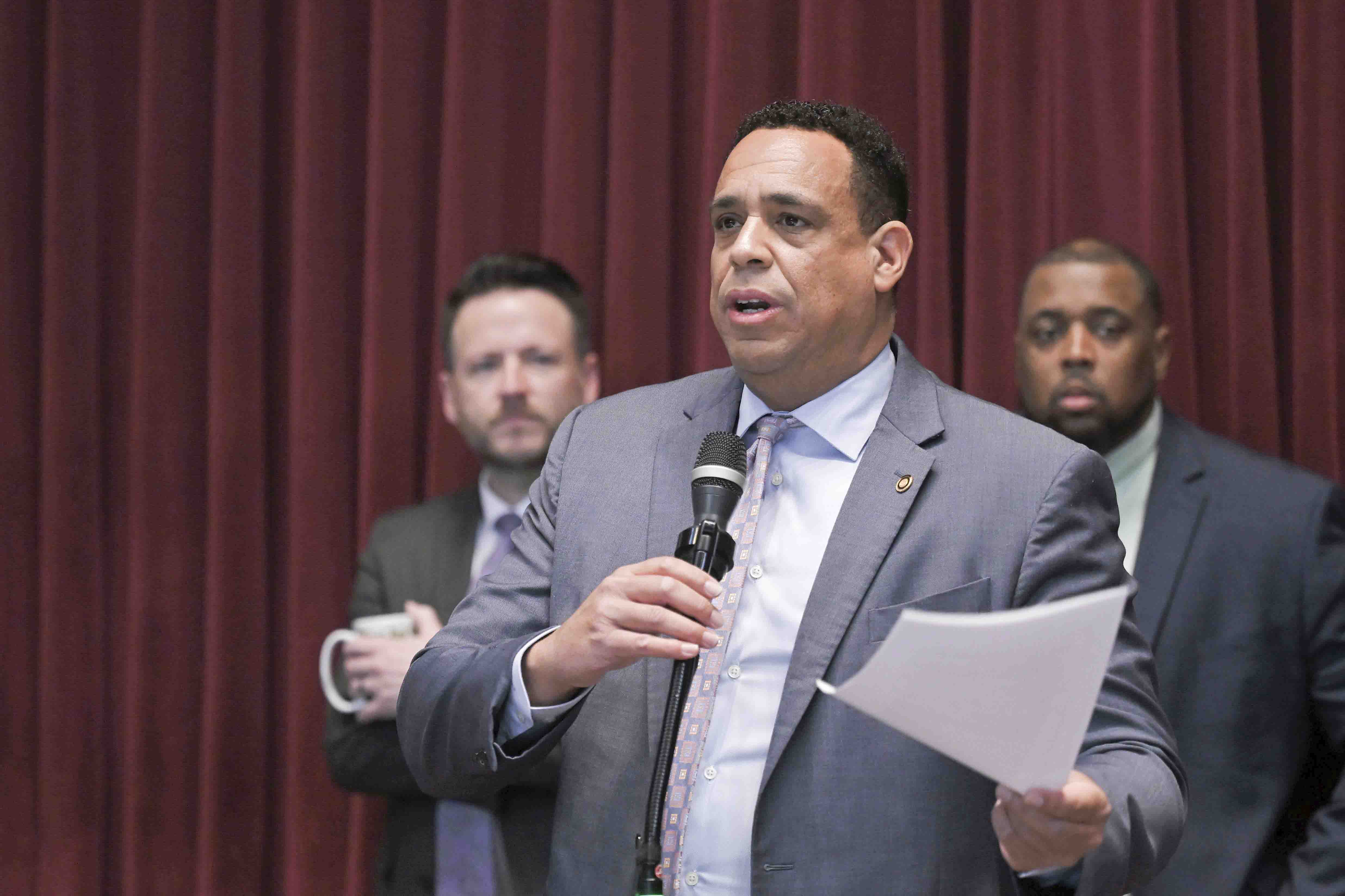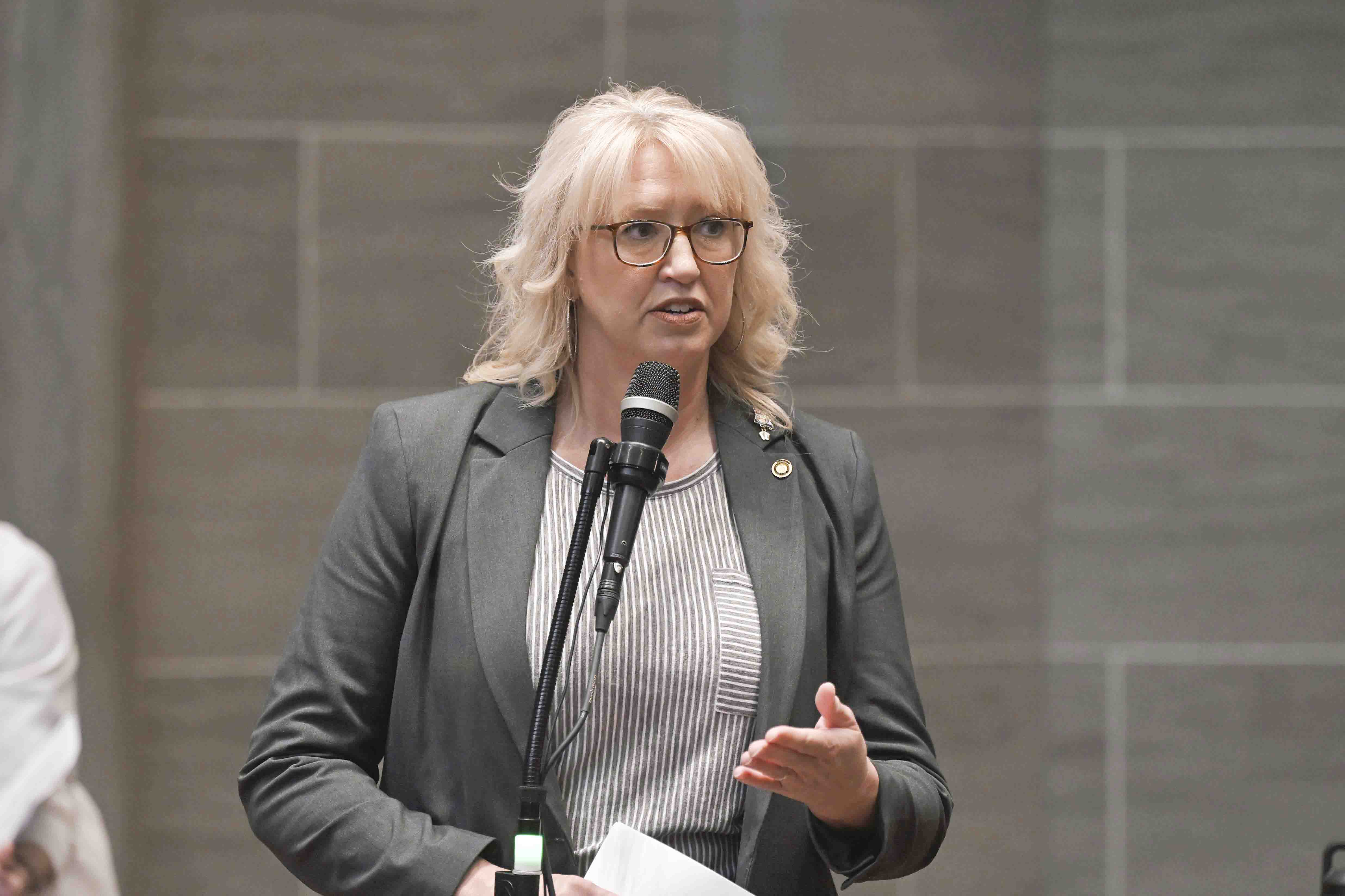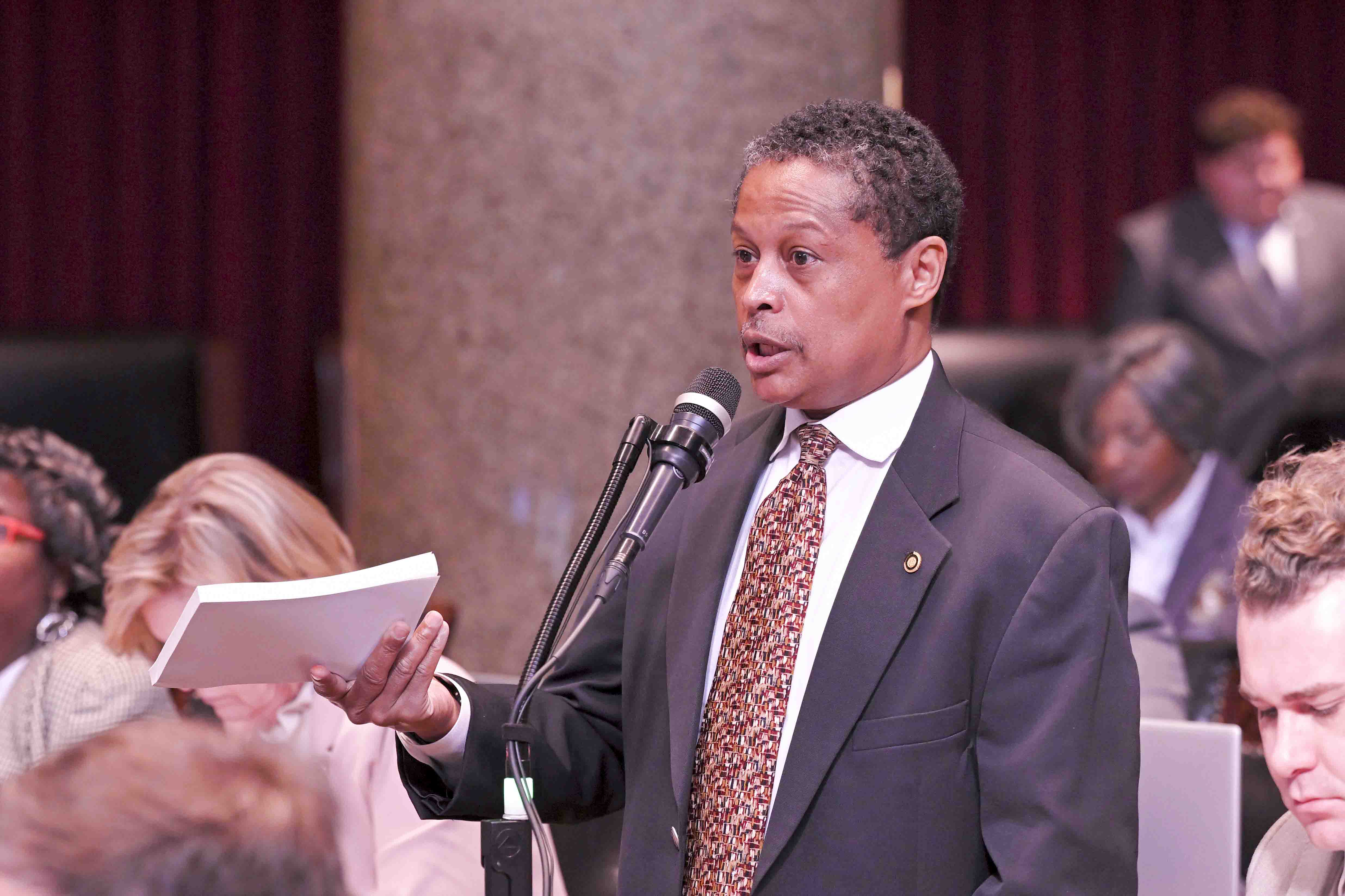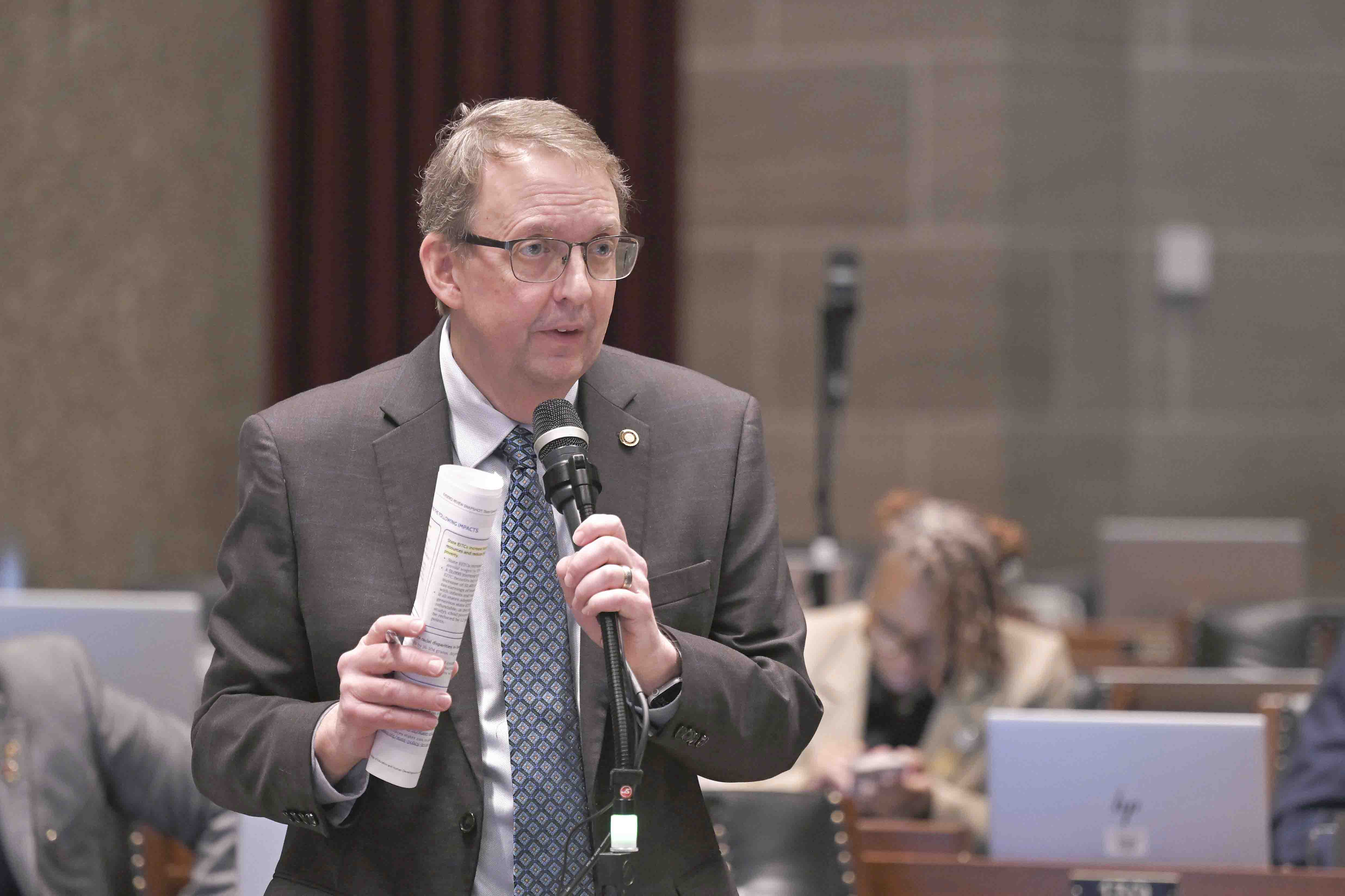House Speaker Jon Patterson (R-Lee’s Summit) and Appropriations Committee Chairman Dirk Deaton (R-Seneca) discussed the proposed Fiscal Year 2026 budget and other work from the penultimate week of session.
Author: Mike Lear
VIDEO: House Democrat media conference 05-09-2025
House Democrats discussed the proposed Fiscal Year 2026 budget that was sent to the governor this week, and addressed other issues from the penultimate week of the 2025 session.
An End to State Seizure of Foster Children’s Benefits Headed to Governor’s Desk
The Missouri legislature has voted to ensure that money intended for children in the state’s foster care system goes to those children and not the state, and in doing so the House has kept a promise it made in January.
Legislators first learned during the 2024 session that the state had for decades been intercepting benefits intended for foster children – things like railroad pensions and social security payments – and applying that money to the cost of providing their care. In fiscal year 2024, that amounted to more than $10.6 million seized by the state.
House members were “shocked” to hear that children, particularly those who have already gone through a tragic life-altering event, who have lost their parents, were being “victimized,” as one lawmaker put it, by the state.
“That was the other thing that kind of sealed the deal for me: hearing stories of kiddos that this actually affected,” said the sponsor of House Bill 737, Melissa Schmidt (R-Eldridge). “Children that knew that there were pension dollars reserved for them and then expecting that when it was time for them to age out, and then coming to the realization that they wouldn’t have access to those dollars, and they were planning to use those for education, for transportation, for housing, all the things that we want them to be able to use those dollars for, and I would say the things that their parents who left the pension had hoped they could use those dollars for.”
Representative Raychel Proudie (D-Ferguson) said of the legislation, “These children, who’ve already been through something traumatic which brought them into our care, should not be subject to something unique and even more punishing.”
Schmidt, who is in her first year in the House, took up the legislation after talking to the predecessor in her house seat, Hannah Kelly, who originated it. Kelly, whose focus during her four terms was on children and what the state can do about the traumas they face, returned to the Capitol this week after learning that HB 737 had been sent to Governor Mike Kehoe (R).
Kelly often mentions one little girl who approached her during the proposal’s first committee hearing last year.
Kelly had to leave the House due to term limits and when Schmidt won that district the two of them spoke, and Kelly asked her to take up this bill. Schmidt said in spite of the fact that she and her husband have served as foster parents and have a long history with the system, she had never heard this was happening.
Schmidt said the legislation will end a practice she, as so many before her, called “shocking,” while ensuring the state Children’s Division will be able to continue to provide care.
Proudie, who has been one among the most vocal about this issue since its introduction, said of the bill’s passage, “I’m glad it finally went through. Finally, we can give foster kids what they’re entitled to and what they deserve. We should not be charging children for existing and their own expenses. When they become Missouri’s kids they become Missouri’s responsibility not their own responsibility. We don’t treat any other children like that in the State of Missouri.”
Proudie said she hopes that a next step will be to find a way to do something for those whose money has already been taken by the state.
“I hope we provide some kind of remedy or reparations for them. And, a lot of them who have gone through this have come back to testify, of course they’re not bitter about it. They want this, they know that this is an issue, they live this issue, they don’t want it to happen to any other children,” Proudie said. “I don’t know what that would look like because it’s been tens of thousands of children over time, and it would be something we would have to appropriate, but I’m certainly interested in a conversation.”
The legislation had fallen short last year despite its broad, bipartisan support and outrage at the practice. When this year’s session began in January, House Speaker Jon Patterson (R-Lee’s Summit) pledged that it would be passed this year.
Among the “other provisions” added to HB 737 were language to nullify nondisclosure agreements in child sexual abuse cases, and to ban marriages for anyone younger than 18.
The House’s last vote on HB 737 was 129-14. It now awaits action by Governor Kehoe, who once his office formally receives it, will have 15 days to either sign it, veto it, or allow it to become law without his action.
Previous stories:
House Renews Effort to End State Seizure of Foster Children’s Benefits 01-22-2025
House Acts to stop State Seizure of Benefits Intended for Foster Children 04-02-2024
VIDEO: House Republican media conference 05-01-2025
Speaker of the House Jon Patterson (R-Lee’s Summit) discussed this week’s work and looked ahead to the final two weeks of the 2025 legislative session.
VIDEO: House Democrat media conference 05-01-2025
House Democrats assessed the past week and looked ahead to the final two weeks of the 2025 legislative session.
House Unanimously Supports Banning NDAs in Child Sex Abuse Cases
The Missouri House has voted to take away one of the tools sexual predators use to protect themselves, and to be able to find and abuse new victims. House Bill 709, which was sent to the Senate this week, would bar the enforcement of non-disclosure agreements in cases of child sexual abuse.
Such legal contracts sometimes come into play in abuse cases, particularly when parents or guardians accept a settlement with an abuser. These contracts have left victims unable to talk about what they experienced, and their abusers have been enabled to change locations or jobs without anyone knowing what they had done, allowing them to continue their transgressions in new places and against new victims.
“It’s an injustice and a wrong that we can make right, now,” Representative Brian Seitz (R-Branson) told his colleagues.
Seitz is the sponsor of HB 709, the latest version of a proposal he has offered for several years now. He urged his colleagues to again advance it after other forms of the measure have already received broadly supportive votes across multiple legislative sessions.
In this latest bid, Seitz told his fellow legislators, “Through no fault of their own, children and/or the medically disabled who may have been abused in the past are being abused again by the misuse of NDAs in civil settlement agreements.”
“These are legal mechanisms that were created to protect trade secrets, not trauma secrets. Again I state: NDAs are wholly appropriate if you’re dealing with manufacturing trade secrets, but they can kill trauma victims,” said Seitz, referring to the fact that some victims have chosen to end their own lives, after an inability to speak out multiplied their anguish.
Other House members offered strong support. Columbia Representative David Tyson Smith (D), an attorney for two decades, said to silence a child is one of the worst things a person can do, especially when they have been abused and are too young to make for themselves the decision to agree not to speak about it.
Representative Rudy Veit (R-Wardsville), another practicing lawyer, told his fellows he has dealt with abuse survivors and seen firsthand the courage it takes for them to acknowledge what they have experienced, even to themselves.
Representative Raychel Proudie (D-Ferguson), who focuses much of her legislative efforts on protecting children, also stressed the importance of adding this language to Missouri law.
“Typically, non-disclosure agreements or NDAs are put forth to protect business interests. No one should be in the business of hurting children,” Proudie said. “We should not be protecting the business interests or behaviors of perverts and people who hurt children.”
709 reaches the Senate with only three weeks remaining in the legislative session, but versions of the proposal are moving in several other forms and on several other bills. Seitz expressed optimism during the debate, noting that in the Senate as in the House, the bill has received “total, bipartisan support.”
HB 709 was advanced to the Senate 148-0.
VIDEO: House Democrats media conference 04-24-2025
House Democrats spoke to reporters and took questions about this week’s work in the House, and what is expected in the final three weeks of the legislative session.
VIDEO: House Republican media conference 04-24-2025
House Majority Floor Leader Alex Riley (R-Springfield) addressed reporters and took questions regarding this week’s work in the House, and what’s coming next week.
House Votes to Stem Penalties when Tax Credits Meet Caps
Many Missourians are already not a fan of tax filing day, which came this week. As Representative Becky Laubinger (R-Park Hills) explains, some of them have been surprised with additional reasons to be aggravated, in past years.
The issue Laubinger’s bill deals with is that when there are enough claims against a state tax credit for it to reach its annual cap, some claimants, even though they met all qualifications, will get a bill from the Department of Revenue for the amount they claimed, plus interest and penalties. This is in spite of the fact that there is no way for them to know that cap would been reached.
House Bill 828, “would remove the penalties and interest for someone who qualified for a tax credit but the state hit the cap. They would still have to pay their taxes in full within 60 days or they would receive penalties and interest,” Laubinger told her colleagues.
Those bills from the Department of Revenue put some Missourians off claiming tax credits, many of which benefit benevolent organizations such as food banks, children’s crisis centers, domestic violence shelters, and other charities that serve those most at need in their communities.
Arnold representative Phil Amato (R) for many years was the president of his local food pantry. He has sponsored similar legislation, having experienced firsthand what happens when these bills are sent out.
“Sometimes it takes you two to three years to talk somebody that has the wherewithal to write a check, and you tell them that it’s a 50 percent tax credit, that they’re going to get half their money back, and then they get a letter from the Department of Revenue that some of their donation has been disqualified, and then adding insult to injury is they’re charging them penalty and interest,” Amato explained. “Then the person is really upset because you’ve convinced them, ‘It’ll make you feel good to write this check to the local food pantry and help people that are hungry.’”
Laubinger’s bill enjoys broad bipartisan support, with no votes being cast against it as went through two House committees and was advanced to the Senate, 151-0.
Representative Del Taylor (D-St. Louis), the top Democrat on the House’s Ways and Means committee, through which the legislation was passed, urged those in his party to support the proposal.
Amato said he would like to know whether the state is even making back the money that it spends on collecting these taxes and penalties.
It’s now up to the state’s Senate to consider Laubinger’s proposal, but the House will have another chance to act. The Senate version of her bill is awaiting action in a House committee.
Either way, Representative Kemp Strickler (D-Lee’s Summit) is one of the many who hopes it will reach the desk of Governor Mike Kehoe (R).
Other provisions in the bill would add to the income tax deduction for the sale or lease of farmland to beginning farmers a definition of “taxpayer;” and would stipulate that filing day for Missouri taxes must always coincide with the federal tax filing day.
VIDEO: House Democrats media conference 04-17-2025
Missouri House Democrats talked about the past week after the close of legislative business on Thursday.
